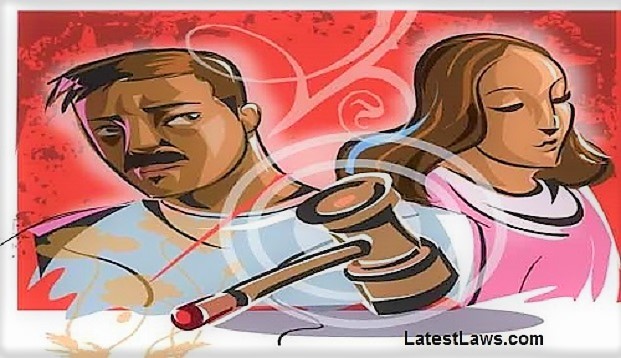May 16,2018:
On Monday, Delhi High Court delivered a important judgment regarding divorce by mutual consent under Section 13 B, Hindu Marriage Act.
HC Bench comprising of Justice Hima Kohli and Justice Deepa Sharma gave its judgment on a batch of Contempt petitions after a Single Judge Bench had framed certain questions for consideration by a Larger Bench.
According to the first part of Section 13B, a petition for dissolution of marriage by a decree of divorce may be presented by both parties, on the ground that they have been living separately for a period of one year or more, and that they have mutually agreed that the marriage should be dissolved.
Section 13B further states that on the motion of both the parties made not earlier than six months after the date of the presentation of the petition, and not later than eighteen months after the said date, if the petition is not withdrawn in the meantime, the court shall, on being satisfied, pass a decree of divorce declaring the marriage to be dissolved.
High Court Bench answered four questions of law have been framed for consideration by Single Judge of the HC, which are as follows:
A) Whether a party, which has under a settlement agreement decreed by a Court undertaken to file a petition under Section 13B(1) or a motion under Section 13B(2) of the Act, 1955 or both and has also undertaken to appear before the said Court for obtaining divorce ―can be held liable for contempt‖, if the said party fails to file or appear in the petition or motion or both to obtain divorce in view of the option to reconsider/renege the decision of taking divorce by mutual consent under Section 13B(2) of the Act?
B) Whether by undertaking before a Court to file a second motion under Section 13B(2) of the Act, 1955 at Section 13B(1) stage or by giving an undertaking to a Court to that effect in a separate court proceeding, a party waives its right to rethink/renege under 13B(2) of the Act, 1955? If yes, whether such right can be waived by a party under Section 13B(2) of the Act, 1955?
C) Whether any guidelines are required to be followed by the Court while recording the undertaking/agreement of the parties with respect to a petition under Section 13B(1) or a motion under Section 13B(2) of the Act, 1955 or both for obtaining divorce?
D) Whether the judgment in Avneesh Sood and Shikha Bhatia are good law in view of the doubts expressed by this Court in paras 19 to 28 and in view of the Division Bench judgment in Dinesh Gulati.
The first question was answered in affirmative and it held that the element of mutual consent was the sine qua non of passing a decree of divorce under Section 13B and withdrawal of consent even at the stage of the enquiry, as contemplated under Section 13B(2), is also in exercise of the right available to a party.
Delhi HC further held that the defaulting party can be held liable for civil contempt on the ground of breaching the terms and conditions incorporated in an undertaking given to the court or made a part of a consent order/decree.
Bench stated that,"However, no direction can be issued even in contempt proceedings to compel the defaulting party to give its consent for a decree of divorce by mutual consent, as it is opposed to the object, policy and intent of Section 13B of the Hindu Marriage Act".
In relation to initiation of Contempt proceedings, High Court expounded that,“Simply because a decree/order is executable in law, will not take away the court’s jurisdiction to initiate contempt proceedings and if satisfied that the said breach of the undertaking/settlement agreement/consent order or decree on the part of the defaulting party is willful and intentional or substantially interferes or tends to interfere with due course of justice, impose punishment under Section 13 of 1971 Act".
Bench further added that,"At the same time, the courts have held in several judicial pronouncements that contempt jurisdiction should be exercised sparingly and even if it finds that a party has committed contempt of court, courts can always exercise their discretion to drop contempt proceedings, depending on the facts and circumstances of a case."
Read Judgment @LatestLaws.com:
Delhi High Court Judgment on Divorce by Mutual Consent (Download PDF)
Delhi High Court Judgment on Divorce by Mutual Consent by Latest Laws Team on Scribd
Picture Source :

























